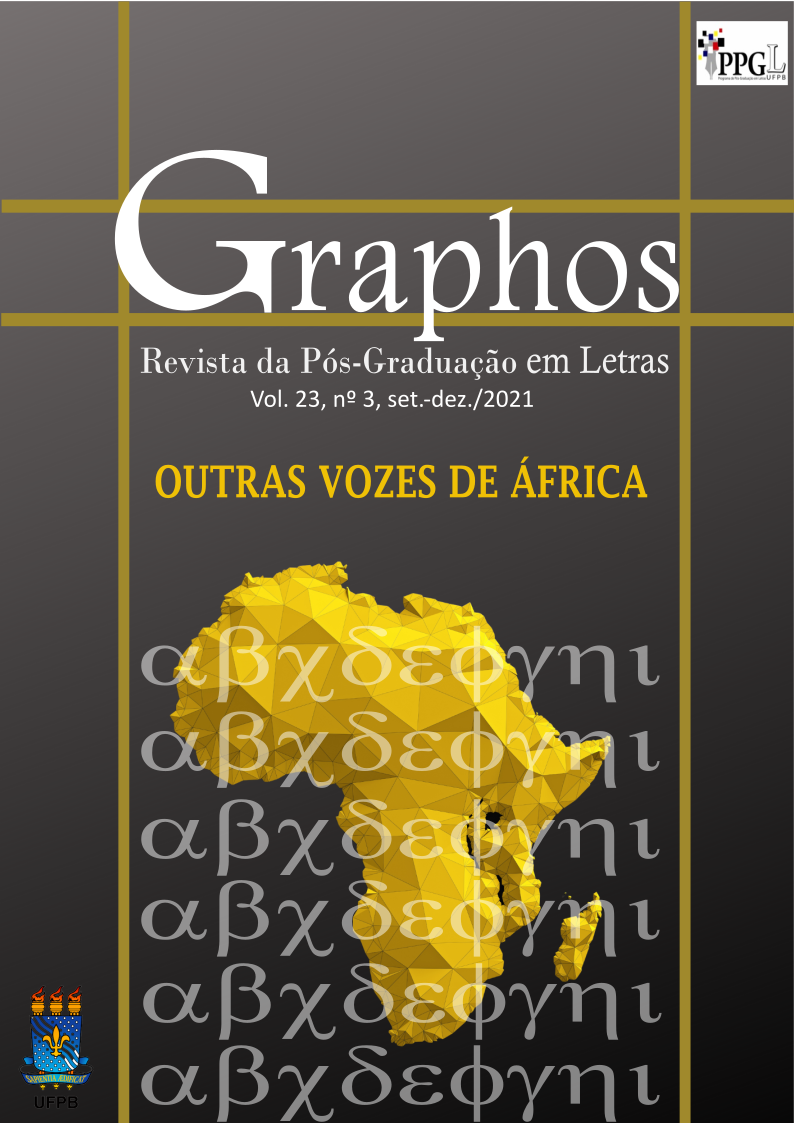Between two cultures: fragmented self in the short story “The Mubenzi Tribesman”, by Ngugi Wa Thiong’o
DOI:
https://doi.org/10.22478/ufpb.1516-1536.2021v23n3.60187Keywords:
Duality, Identity, Fragmentation, Tradition, ModernityAbstract
This paper analyses the short story “The Mubenzi Tribesman”, by Ngugi Wa Thiong’o aiming at investigating the fragmented self of the African traditional man (who lives in a tribal community and eventually has to face the post-colonial Kenyan city society). The main character Waruhiu lives in a place which represents tradition, a Mubenzi village. When he leaves to receive a higher education at the University, he vowed to return to the village in order to serve his people. However, while in the University, he finds Ruth, who represents modernity, the European ways and consumerism in the new African society. He falls in love with Ruth, and marriage is a logical consequence. Ruth is African, but follows the European way of life, and it puts Waruhiu in a dilemma: on the one hand, he needs to keep his vows to his tribesman; on the other hand, he needs to establish a new life standard with his wife in the capitalist society of the city. The investigation methodology is based on theoretical approaches that discuss tradition and modernity developed by Balandier (1976), Habermas (2000), Mathews (2006). The postcolonial and identity issues are studied by Bonnici (2000) and Hall (2003, 2006). The results of the research indicate that the main character is divided between two realities: his people’s traditional life, which he left, and his wife’s modern society, which punishes him when he tries to fit in through illegal methods. This duality determines the fragmentation of his subjectivity and compromises his future in a permanent way.
Downloads
References
BALANDIER, George. As dinâmicas sociais: sentido e poder. Tradução de Gisela Stock de Souza. Rio de Janeiro: Difel, 1976. 295p.
BHABHA, Homi. O local da cultura. Belo Horizonte: Ed. da UFMG, 1998. 395p.
BONNICI, Thomas. O pós-colonialismo e a literatura: estratégias de leitura. Maringá: Ed. da EDUEM, 2000. 377p.
DUBE, Saurabh. Introductio: colonialism, odernity, colonial modernities. Neplanta: Views from South, v. 3, n. 2, p. 197-219, 2002.
FIGUEIREDO, Eurídice. Construções de identidades pós-coloniais na literatura antilhana. Niterói: Ed. da EDUFF, 1998. 166p.
HABERMAS, Jurgen. O discurso filosófico da modernidade: doze lições. Tradução de Luiz Sérgio Repa e Rodnei Nascimento. São Paulo: Martins Fontes, 2000. 264p.
HALL, Stuart. A identidade cultural na pós-modernidade. Tradução de Tomaz Tadeu da Silva e Guacira Lopes Louro. 11ª ed. Rio de Janeiro: DP&A, 2006. 104p.
HALL, Stuart. Da diáspora: identidades e mediações culturais. Tradução de Adelaine La Guardia Resende et al. Belo Horizonte: Ed. da UFMG, 2003. 434p.
HARDT, Michael; NEGRI, Antonio. Império. Tradução de Berilo Vargas. Rio de Janeiro: Record, 2005. 502p.
MATHEWS, Freya. Beyond modernity and tradition: a third way for development. Ethics & The Environment, v. 11, n. 2, p. 85-113, 2006. DOI: https://doi.org/10.2979/ETE.2006.11.2.85
RODRIGUES, Angela Lamas. Vidas em transformação: o assombro da modernidade em The River Between e Secret Lives. In: CANDIA, Michela Rosa Di; LIMA, Tereza Marques de Oliveira (org.). As muitas Áfricas: tradição, memória e resistência. Rio de Janeiro: Letra Capital, 2011. p. 109-121.
SERRANO, Carlos; WALDMAN, Maurício. Memória d'África: a temática africana em sala de aula. 3ª ed. São Paulo: Cortez, 2010. 328p.
THIONG’O, Ngugi Wa. Secret lives and other stories. London: Heinemann Educational, 1975. 144p.
THIONG’O, Ngugi Wa. Decolonizing the mind: the politics of language in African literature. London: Currey, 1986. 114p.
Downloads
Published
Issue
Section
License
Copyright (c) 2021 Nelci Alves Coelho Silvestre, Alba Krishna Topan Feldman

This work is licensed under a Creative Commons Attribution 4.0 International License.







